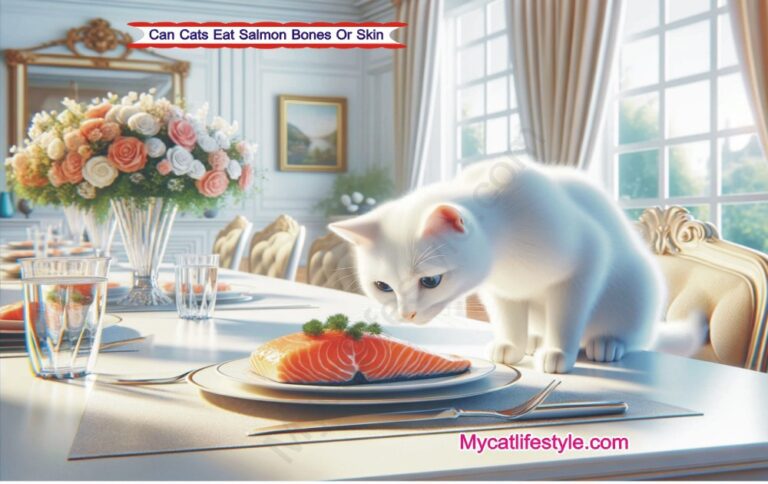Are Diffusers Safe for Cats to be Around? Vet-Approved Science & Safety Guide
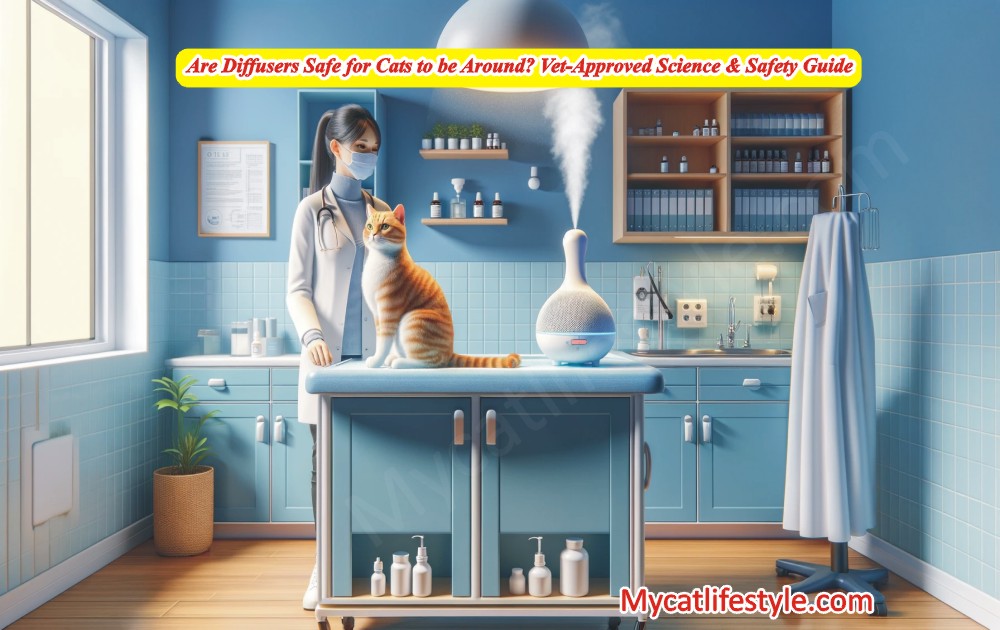
You might be surprised to find out that cats mostly understand the world through their sense of smell. This sense is incredibly developed in cats, as well as in many other animals. You might be wondering if it’s safe to use diffusers around cats. While some diffusers can be safe, they are generally risky and should be avoided around cats.
This guide will help you understand which diffusers are safe for your pet and which ones to steer clear of. First, let’s get a better understanding of how cats perceive the world with their highly sensitive noses.

Cats & Their Sense of Smell
Cats explore their environment using their sense of smell. They are much better equipped than humans to depend so heavily on this sense. The number of scent receptors in an animal’s nasal cavities is a good measure of how advanced their sense of smell is. When something is smelled, it sends a chemical signal to the brain to recognize it. Cats have about 200 million receptors, while humans have only 5 million.
The concern with diffusers is not just about what your cat can smell, but also about the health risks of the substances being diffused and the safety of the diffuser itself.
Are Diffusers Safe for Cats?
With their highly developed sense of smell, you might question whether it’s safe for cats to be around diffusers. Generally, a diffuser carries many risks for cats and is better avoided. If you do decide to use a diffuser in a home with a cat, you need to think about several factors:
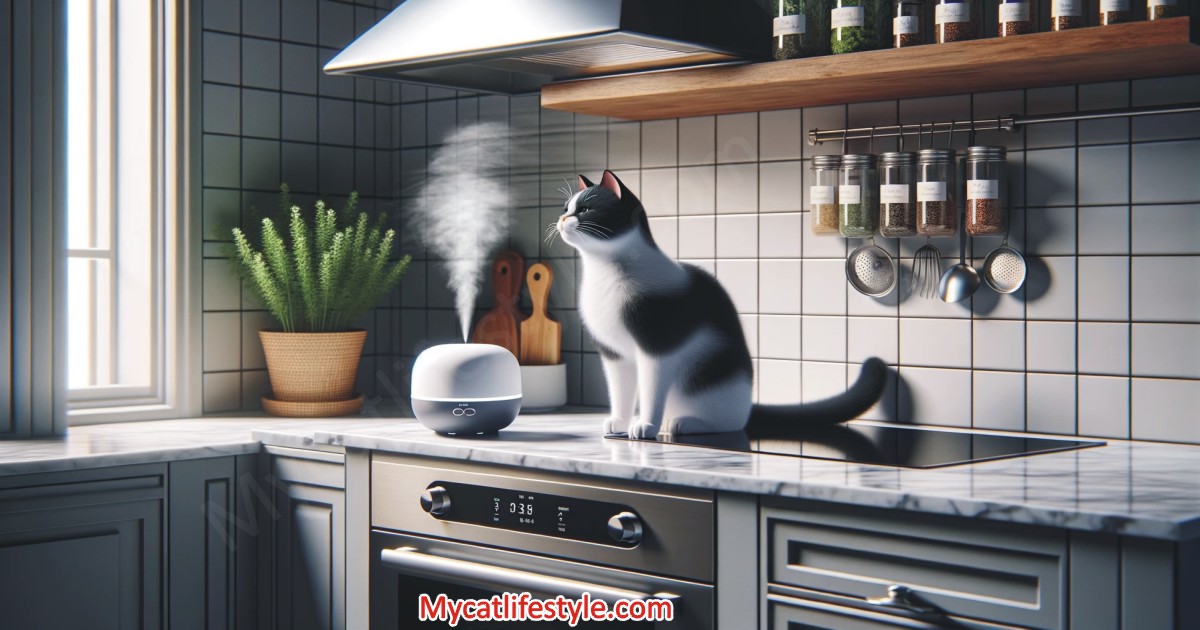
Considerations for Using Diffusers:
- Type: What kind of diffuser are you using?
- Content: What substances are you diffusing?
- Access: Can the cat access the area where the diffuser is located?
- Usage: How often and how long do you use the diffuser?
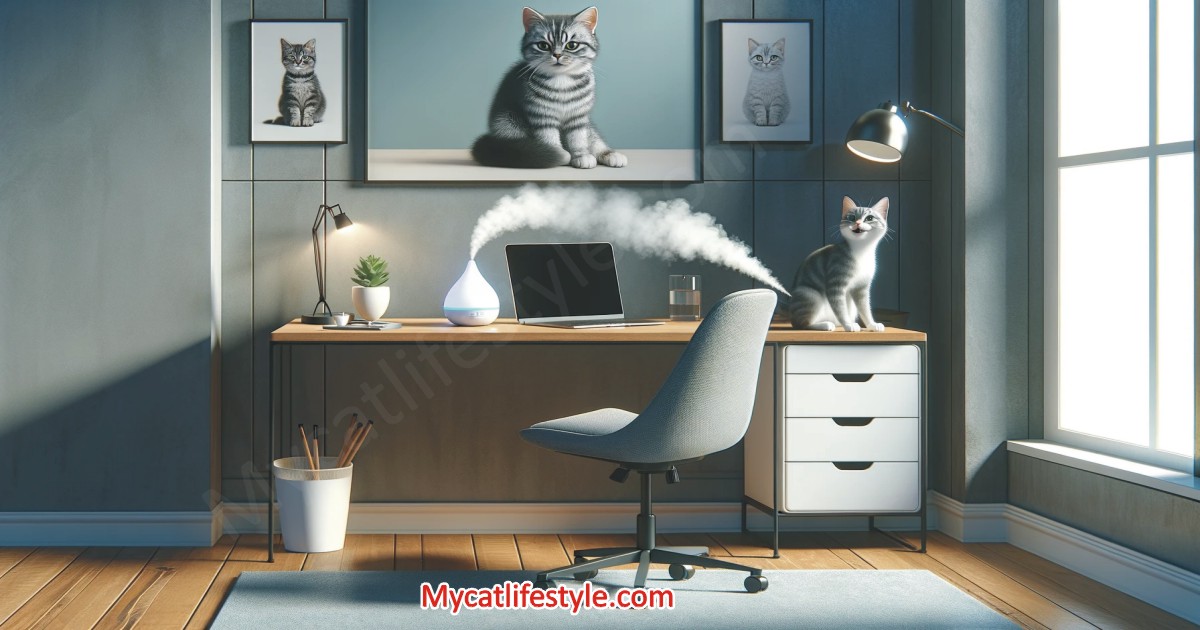
Types of Diffusers
A diffuser serves to spread whatever is placed inside it, usually essential oils, throughout the air. There are various types of diffusers, and their safety can differ. Many use heat, like candles, water, or electric diffusers, to speed up the dispersal process. Other types include nebulizers and reed diffusers. The goal is to control the release of the scent to make it last longer and provide better value.
The key issue is the method of dispersal. Any diffuser involving a flame or heat poses a burn risk, so it’s crucial to keep your cat away from it. Reed diffusers might seem safer because they work by drawing the essential oil up through the reed. However, the concentration of the essential oil can still be problematic for both pets and people.
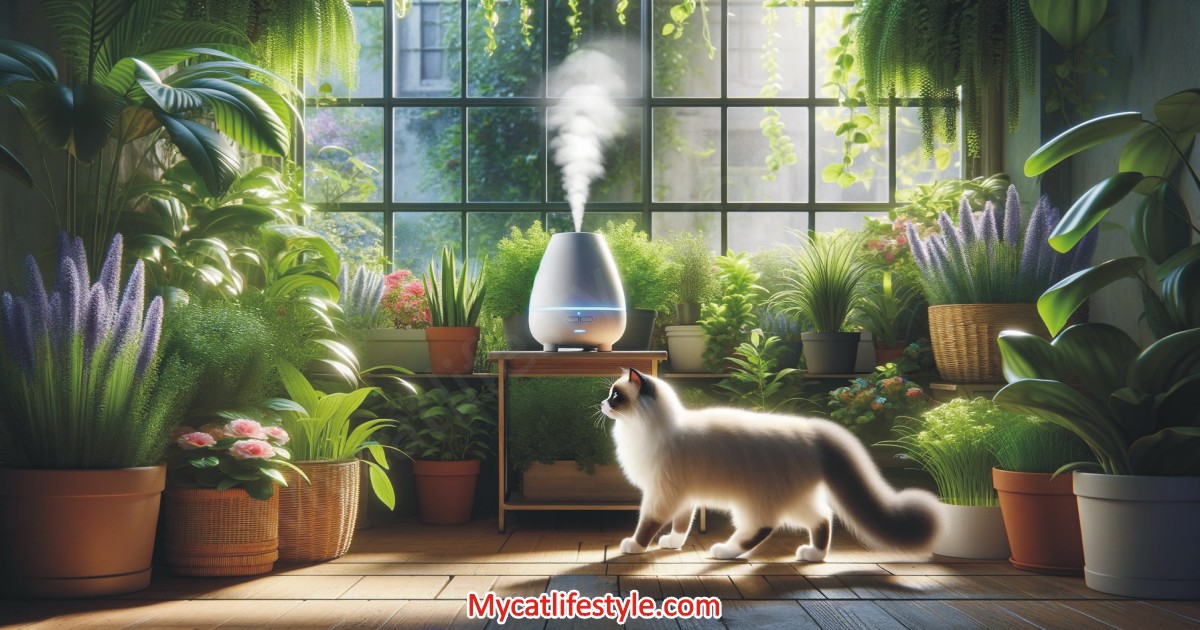
Content in the Diffuser
The contents of your diffuser are a crucial part of the safety equation. Essential oils are concentrated volatile compounds that create the scents you and your cat can smell. Almost all essential oils are considered unsafe for cats and should not be diffused around them, unless a holistically trained, licensed veterinarian specifically advises it. Such veterinarians can also determine the correct dilutions of essential oils that are safe to use around your cat.
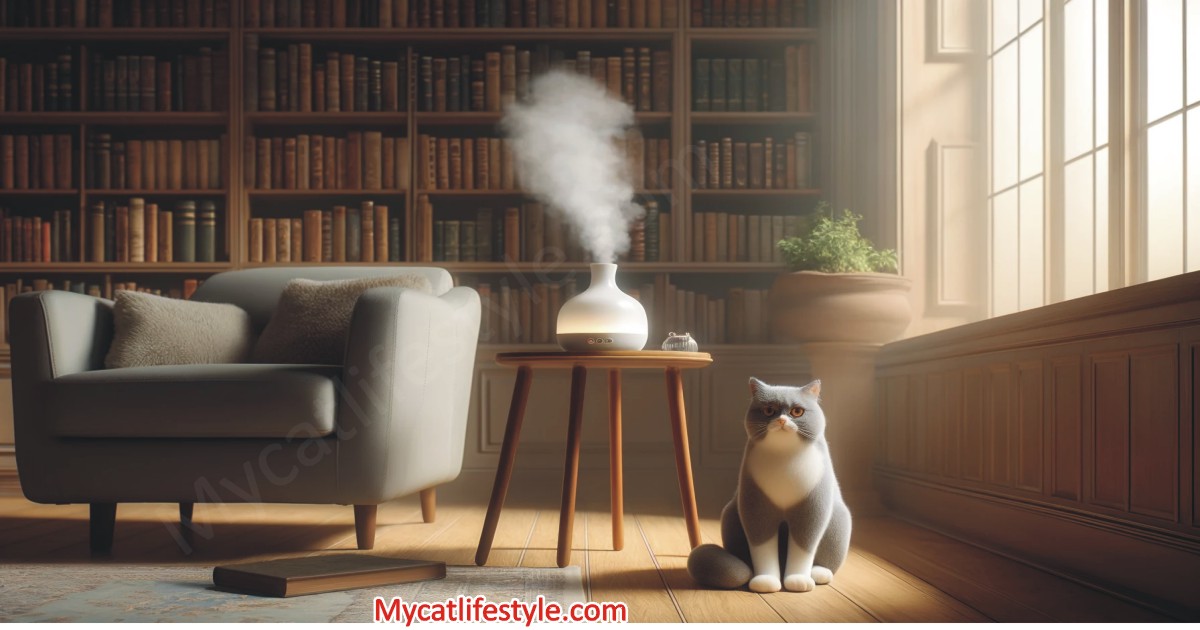

Essential oils are generally unsafe for kittens, pregnant cats, sick cats, and lactating cats. This is because cats do not have the necessary enzymes to break down essential oils. Moreover, diffusers release tiny droplets of these oils into the air. These droplets can land on various surfaces that a cat may touch, or even directly on the cat. When cats groom themselves, they may inadvertently ingest these droplets. Additionally, the diffused essential oils pose an inhalation risk.
While you might think certain scents signify cleanliness, they can negatively impact your cat’s health. For instance, citrus oils, common in many homes, are toxic to both cats and dogs and can cause nervous system issues. If an oil might be unpleasant or harmful to your pet, it’s best not to use it in your home.
However, there are diffuser products designed specifically for cats that are safe and can even help with behavioral issues. These products use synthetic pheromones to calm stressed pets and reduce aggression. They are beneficial additions to a home due to the health benefits they provide.
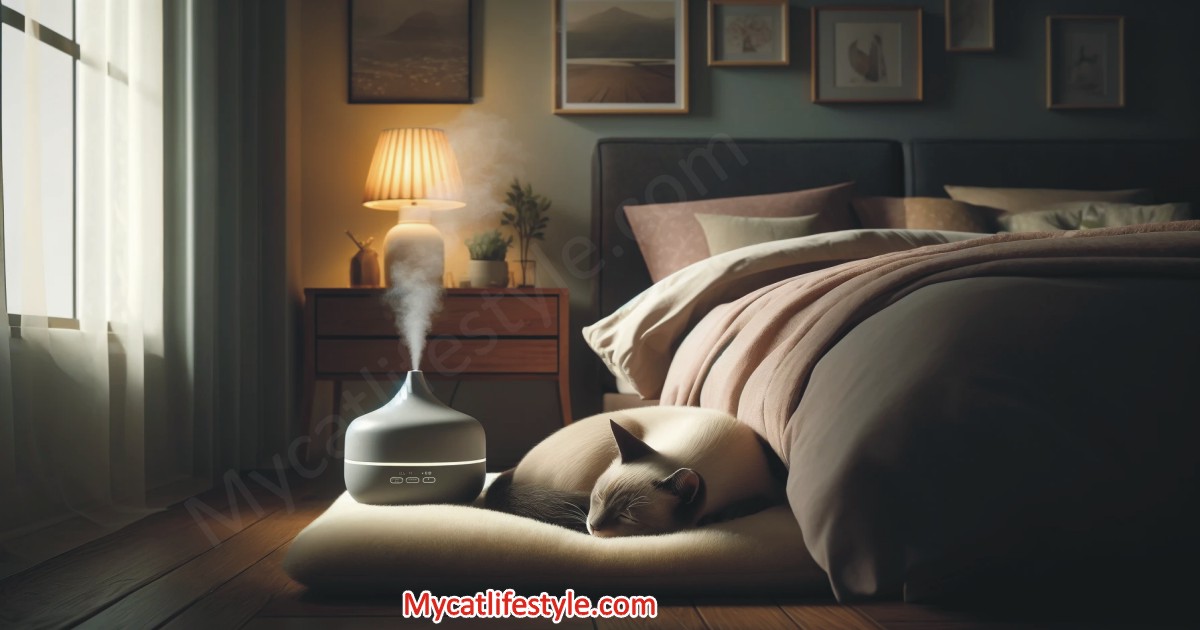
Access to the Diffuser
Access is a critical factor to consider, particularly with kittens. Their natural curiosity drives them to investigate new things around the house, even those that may not be safe. If a cat finds the scent of a diffuser appealing, there is a risk they could ingest a harmful amount if they manage to access it.
While it might seem straightforward to just place the diffuser out of reach, in reality, this is quite challenging. Cats are extremely athletic and agile, capable of jumping onto high surfaces if something piques their interest. This makes it difficult to find a spot that is truly inaccessible to an inquisitive cat.
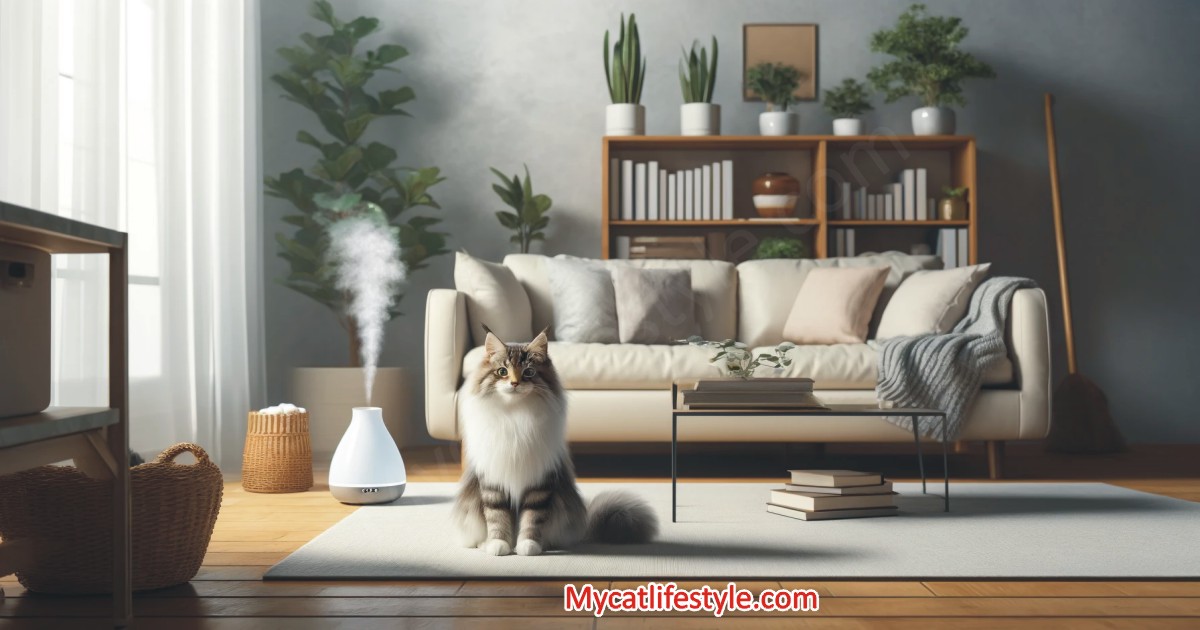
How to Use
Cats can smell things very well. That includes you. They do it to mark their area and feel safe. But, as we already said, diffusers come with many risks that go beyond their smell, so you should be very careful when using them. Because of this, it’s best to keep your cat out of the room when you’re diffusing something.
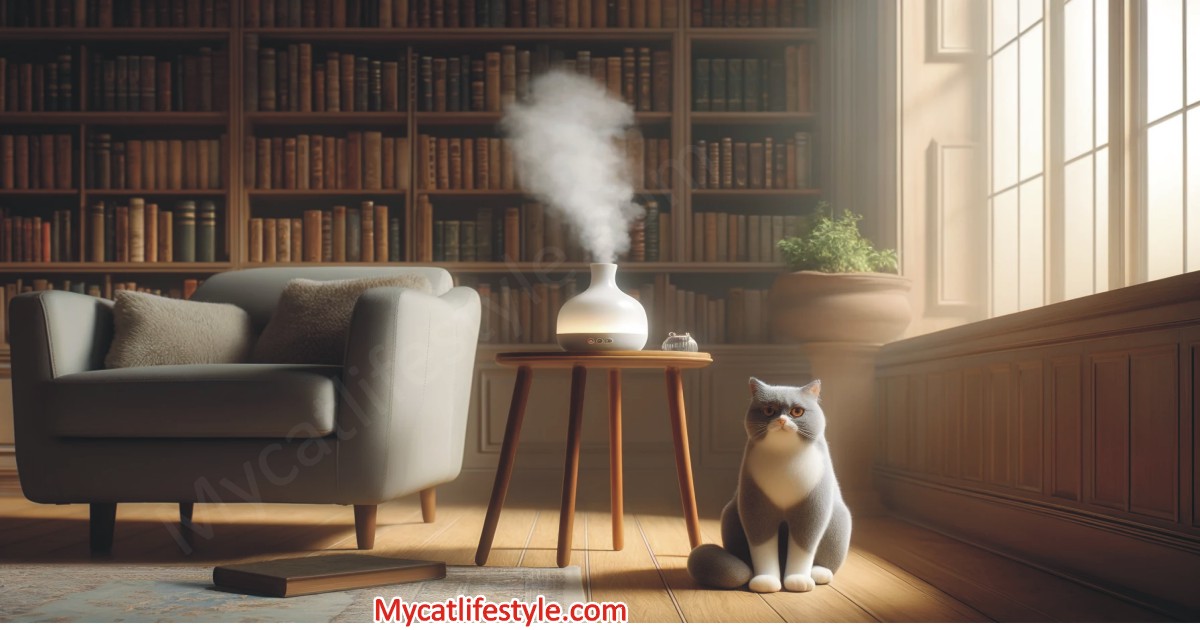
Frequently Asking Questions:
Is it safe for cats to inhale essential oils?
You shouldn’t put essential oils on or near your cat most of the time. When cats breathe in essential oils through a home diffuser, they are more likely to get sick. The vapor from the oils can also get on their skin.
Is calming diffuser safe for cats?
Cat relaxing diffusers are usually safe if used as the maker directs. However, it would help if you stayed away from the pheromone liquid. Most diffusers have an oil that is based on paraffin that can kill you if you swallow it and it gets into your lungs.
Are room diffusers safe for pets?
However, Dr. Wininger tells WCNC that these plug-ins and diffusers can harm your pets if they eat the oils inside. The primary reason is it’s easier for dogs and cats to inhale these oils instead of getting them on their skin in their most concentrated forms.
What room scents are safe for cats?
It is possible to make our homes smell better without putting our pets’ health and safety at risk by choosing scents like lavender, chamomile, and vanilla that are safe for them.
Final Thoughts
It’s important to think about things like this from your cat’s point of view since smell is so important to them, and essential oils are dangerous for them. If you want to use a diffuser alone, you should take your cat out of the room first. However, diffusing items made just for cats is thought to be safe.





